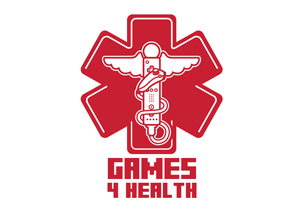 The University of Utah kicked off the 2nd Annual Games4Health Grand Prix Competition, offering total prize money of $50,000 for digital games that improve various aspects of health. Creative and innovative students from all across the globe are invited to compete to address real-world challenges facing well-being, home health and clinical needs, developing and sharing their unique perspectives, ideas, inventions and innovations.
The University of Utah kicked off the 2nd Annual Games4Health Grand Prix Competition, offering total prize money of $50,000 for digital games that improve various aspects of health. Creative and innovative students from all across the globe are invited to compete to address real-world challenges facing well-being, home health and clinical needs, developing and sharing their unique perspectives, ideas, inventions and innovations.
The University of Utah is asking creative and innovative students from across the globe to address real-world challenges facing well-being, home health and clinical needs in the 2nd Annual Games4Health Grand Prix Competition. Prize money will total $50,000 for digital games that improve various aspects of health.
The healthcare industry finds itself in the midst of the most profound transformation in over a century. Digital technologies are expected to drive positive change around the world.
“This year we have doubled the amount of prize money for our challenge, making this the largest student health gaming challenge in the world,” said Chris Wasden, executive director of the Sorenson Center for Discovery & Innovation. “We have seen tremendous interest in health gaming from major corporations such as MetLife and entrepreneurial startups such as Arches Health Plan.”
Events and Milestones
- Feb. 20, 2015 – Registration deadline to compete
- March 20, 2015 – Submission deadline for judging
- March 30, 2105, 9 a.m. to 4 p.m. – The Snowbird Ski Summit will bring together gaming, healthcare and technology executives and entrepreneurs to enjoy a day of skiing and our keynote lunch event focused on creating a pipeline for future games.
- March 31, 2015, noon to 3 p.m. – Arcade Demo will be a three hour event at the David Eccles School of Business where dozens of new health oriented games will be on display for judging and demonstration by their developers.
- March 31, 2015, 6-8 p.m. – Gala Grand Prix will be a dinner and awards ceremony where students will win $50,000 in prize money for their games across three tracks and categories.
Challenge Details
Sponsors posed specific challenges:
- Arches Health Plan offered $3,000 in prizes for game solutions to increase the purchase of health insurance by young adults.
- MetLife wants competitors to tackle the problem of driver distraction through texting and the like, offering $5,000 in prizes.
- The iThrive Initiative has offered $10,000 in prizes for digital games that strengthen adolescent emotional capacity. iThrive is led by Centerstone Research Institute and supported with a generous grant from the D.N. Batten Foundation.
- The Sorenson Center for Discovery & Innovation is offering $30,000 for entries in any other sectors of health. Details on the specific challenges and entry rules are outlined on the website g4h.business.utah.edu.
Students have until Feb. 20 to register for the event. The competition is structured under three categories:
- Well-being – Use cases that improve physical or mental health but the patient is not under medical orders or supervision. This includes fitness, wellness, positive psychology, prevention, safety, sports, and outdoors.
- Home Therapy – Use cases under medical orders or supervision but not performed within a medical or clinical location or environment. This includes use cases like simple or complex disease management and transition care management.
- Clinical – Use cases performed within a clinical or medical location and under medical orders or supervision, or administrative functions that support or facilitate medical activities. This includes diagnostics, therapeutics, electronic health records and scheduling.
Students may submit any one of the following:
- Wireframe – A set of images that displays the functional elements of an app, game or website used for planning a site’s structure and functionality. The wireframe must include dynamic navigation and graphic details to mimic the look, feel, function and navigation experience expected of a coded game.
- Game – An alpha, beta or fully coded and completed game or application.
- Module – A module that could be added to an existing game. The module can be either in the form of a wireframe or a game.


